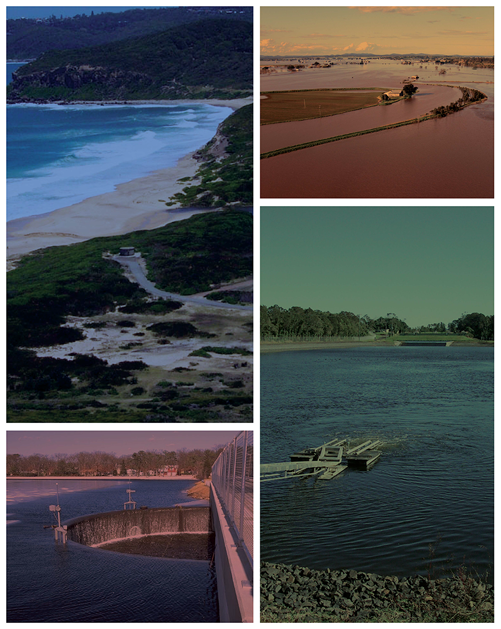The Hydrology and Water Resources Symposium 2022 has been announced with a call for abstracts already out. It is scheduled for 30 November – 1 December 2022. From the Organising Committee:
“Engineers Australia is set to host the 40th iteration of the Hydrology and Water Resources Symposium from 30 November – 1 December 2022, under the theme, ‘the past, the present, the future.’
Join us as we look back at the work and impact of our industry predecessors, discuss current water-related issues and trends, and explore the innovations and technologies that are shaping the future of water engineering. “

The theme for HWRS 2022, The past, the present and the future, covers a range of topics relevant to practicing water engineers, students, academics, researchers, and industry specialist providers.
Examples of potential presentation topics are listed under each sub-theme below:
Hydrology
- Event based
- Long term continuous modelling
- Monte Carlo
- Data collection/gauging
- Rare-extreme event analysis
- Climate change
- Programming
Flood forecasting
- Machine learning in flood forecasting
- Real-time flood forecasting and warning
- Prediction in ungauged catchments
- Management of uncertainty
- Statutory response to flood forecasting
Floods – Risk assessment, planning and management
- Design flood estimation and risk assessment
- Floodplain modelling and management
- Regional flood studies
- Prediction in ungauged catchments
- Management of uncertainty
- Flood risk management through land-use planning
- Using paleo-hydrology to inform flood risk
Eco-hydraulics
- Digital technology in low flow and drought studies
- Quantifying long-term drought risk
- Minimum flows to protect the environment
- Water quality and drought
- Technical advances in environmental flow assessment techniques
- Environmental flow release trials and policy
- Watershed assessment, monitoring and management
- Water quality and health of aquatic systems
- Fate and transport of pollutants
- Evaluation of environmental flow programs
- Fish and aquatic life passage at hydraulic structures
Instrumentation, hydroinformatics, smart data
- Hydrologic monitoring and data management
- Advances in simulation modelling
- Artificial neural networks, evolutionary methods and cellular automata
- Applications of GPS, remote sensing, GIS digital terrain modelling in hydrology and water resources
- Internet-based applications
- Novel metrology for field measurements in rivers and hydraulic structures
Hydraulic structures
- Spillway design and operation
- Urban hydraulics and structures
- Water management for infrastructure: physical and numerical modelling of dams and weirs
- CFD modelling
- Linear infrastructure
Informing policy and operational decisions
- New digital technologies and methods for water conservation
- Water conservation in the agricultural, industrial and municipal sectors
- Land-use change impacts
- Alternate water sources and Irrigation water management
- Challenges in the use of alternative water sources
- Sustainability issues, challenges, risks and uncertainties
- Water governance, socio-economic framework and policy
- Understanding and forecasting water use behaviour
- Water stewardship, standards and accreditation
- Multicriteria decision making and applications in water systems analysis
- Decision support systems.
Integrated water resources management
- Sustainability and modelling technology
- Water security-conflict management
- Water trading
- Decision Support Systems
- Water supply and demand management
- Bushfire response
Groundwater
- Advances in groundwater modelling
- Groundwater contamination and protection
- Integrated coastal aquifer management
- Water harvesting and groundwater recharge
- Transport and fate of pollutants
- Improving water quality – salinity/sodicity management
Urban water management
- Liveability – meeting the basic social, environmental and economic needs of people
- Water sensitive urban design
- Water and urban microclimate management
- Urban hydrology and flash flooding
Responding to climate change
- Impacts of global and regional climate change and adaption
- Projections of changes to rainfall intensity
- Quantifying, modelling and managing changes to flood risk
- Sea level rise and coastal processes
Industrial water management
- Modelling and managing river diversions
- Water supply for mining and processing
- Managing discharge of contaminated water
- Pumps and pipelines
- Flood risk management for dams and other infrastructure



Leave a Reply